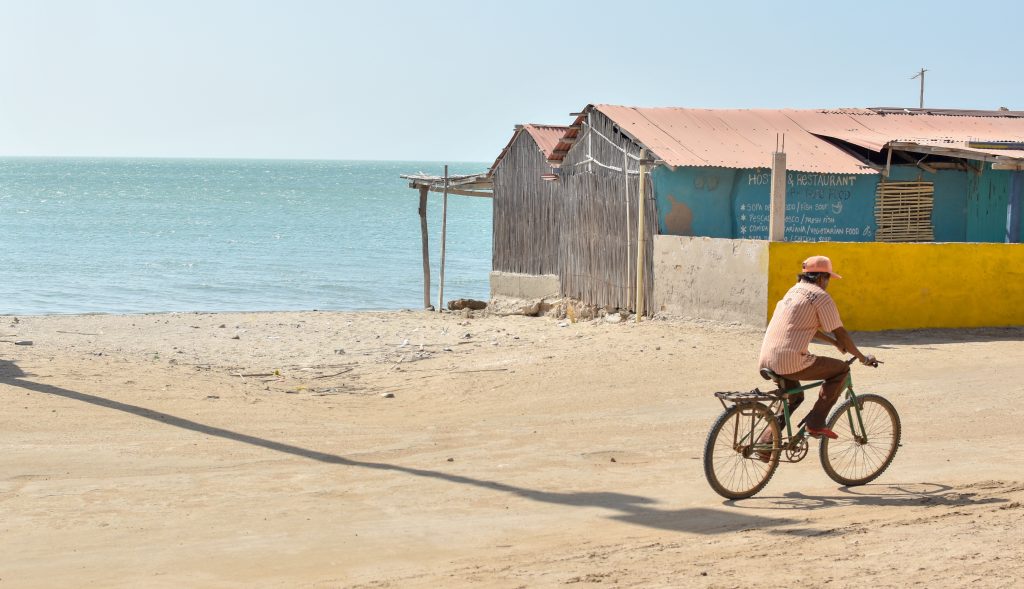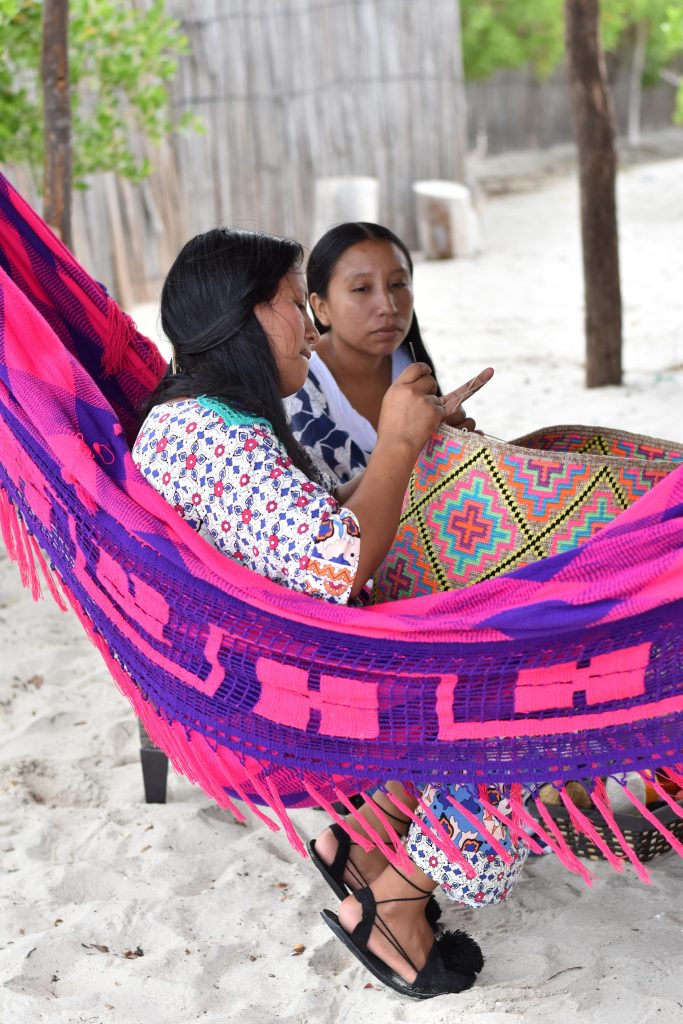
La Guajira, home to the resilient Wayuu community, features striking deserts and Caribbean coastlines. Discover how this Indigenous culture thrives amid a harsh environment and modern challenges.
La Guajira is known for its desert landscape, with temperatures that can exceed 40 degrees Celsius (104°F) and long dry seasons that affect both the people and the local flora and fauna. This aridity has forged a strong and resilient community that has developed ingenious strategies to survive and thrive. Water scarcity is one of the greatest challenges for residents, who largely depend on traditional systems for collecting rainwater and wells.
The Wayuu community has inhabited La Guajira for centuries, developing a rich cultural and social tradition. The Wayuu are known for their matrilineal social structure, where women play a central role in passing down values, traditions, and managing territory. This unique social organization has been key to preserving their cultural identity.
Craftsmanship is one of the pillars of Wayuu culture and economy. The handwoven Wayuu mochilas (bags) are famous for their vibrant colors and symbolism. Each design tells a story, reflecting myths, beliefs, and the worldview of this Indigenous community. Additionally, selling these mochilas provides a crucial source of income for many Wayuu families.
Life in La Guajira for the Wayuu community is marked by rituals and celebrations that highlight their connection to nature and ancestors. Ceremonies such as the Yonna, a traditional dance, bring the community together to celebrate life, fertility, and respect for the land. These rituals not only strengthen community bonds but also keep ancestral knowledge alive.
The Wayuunaiki language is another vital element of their identity. While many young people speak Spanish, the use of their native language in daily life and ceremonies is essential to preserving their culture.

Despite their strength, the Wayuu community faces numerous challenges in today’s context. Poverty, limited access to basic services such as clean water, education, and healthcare, and the effects of climate change all impact quality of life in La Guajira. Water scarcity, in particular, has caused food insecurity and health problems, mobilizing various organizations to support this population.
Modernization and external influences also pose challenges to cultural preservation. However, the community has shown remarkable adaptability, incorporating technology and collaborating on sustainable development projects without losing their roots.
The economy in La Guajira is tied to traditional activities like agriculture, livestock, and fishing, all adapted to the dry climate. In recent years, cultural tourism has grown in importance, attracting visitors interested in learning about Wayuu history, crafts, and traditions. This type of tourism offers opportunities to generate income and promote respect for their culture.
Community projects and cooperatives have emerged to foster entrepreneurship and education, strengthening the community’s autonomy. Companies like Cosecha Bags, which work directly with Wayuu artisans, are examples of initiatives seeking fair and sustainable trade.
The future of La Guajira and its Wayuu community is full of hope but requires commitment and collaboration. Protecting the environment, improving access to basic services, and promoting bilingual education (Spanish and Wayuunaiki) are crucial to ensuring that this millennia-old culture not only survives but thrives in the 21st century.
The resilience of the Wayuu community stands as a powerful testament to the strength of cultural identity and their deep connection to the land they have inhabited for centuries. Despite facing a harsh and often unforgiving environment, including extreme aridity, limited water resources, and the pressures of modern development, the Wayuu have maintained their unique traditions, social structures, and values. Their way of life embodies valuable lessons about living sustainably within nature’s limits, fostering a strong sense of community, and upholding respect for cultural diversity. Through their adaptability and unwavering commitment to preserving their heritage, the Wayuu continue to inspire others by showing how indigenous knowledge and practices can offer meaningful solutions to contemporary environmental and social challenges.
Discover our online store featuring a stunning collection of Wayuu bags. Shop now and embrace the beauty of tradition!